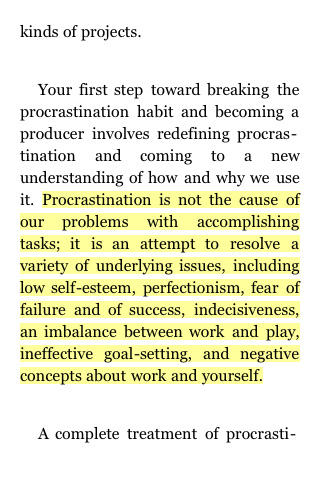Whether you are working in a home office or corporate office, procrastination is both an avoidance technique and a hurdle. This is particularly true when you are working on your own as a remote worker, free-lancer or consultant. Being self-directed in your work gives your freedom as well as the opportunity to avoid doing work. I have written about procrastination techniques: 3 Reasons Why and 3 Tips to Overcome It before. A recent article in Lifehacker discussed a couple of studies on human thinking regarding tasks. The results give you a strategy to overcome your procrastination thinking.
Insight #1: When thinking about a task, our minds have a tendency to focus on the hardest part of it.
Insight #2: To avoid doing the hard part, we procrastinate with busywork.
Insight #3: When interrupted while doing a task, human beings feel compelled to go back and finish it.

Procrastination has several causes. Using how our brain works can help to overcome this hurdle.
Home Office Work Strategy: Start working on that task, start anywhere. Let yourself get engaged, avoid over-thinking it. Once you have started, your mind will feel the need to complete it. Leaving it unfinished is like a “cliffhanger” in a novel or TV series, something that makes you keep reading or watching to find out how it turns out. If you can’t finish the project in one sitting, your mind will urge you to get back to it and finish it. Your mind will focus on the “getting done” and not the hurdle of the hardest part.
Use the tricks your mind plays with you, its inherent need for resolution, to help you move past procrastination and toward finishing the projects that hang over you.
I found this to be true when writing my book. When I was stuck with a particular chapter, I would work on another chapter, edit what I had already written, or search out photos to illustrate the text. I would be working toward the final goal of a completed book, rather than doing procrastination busywork such as “just checking” Facebook, following blog threads into a black hole, or organizing my computer recipe file. When I got back to the hard part of the project, the solution and/or the execution of it was more apparent and more do-able.
How do you handle procrastination and/or difficult projects? Share your ideas and experiences in the comments below.